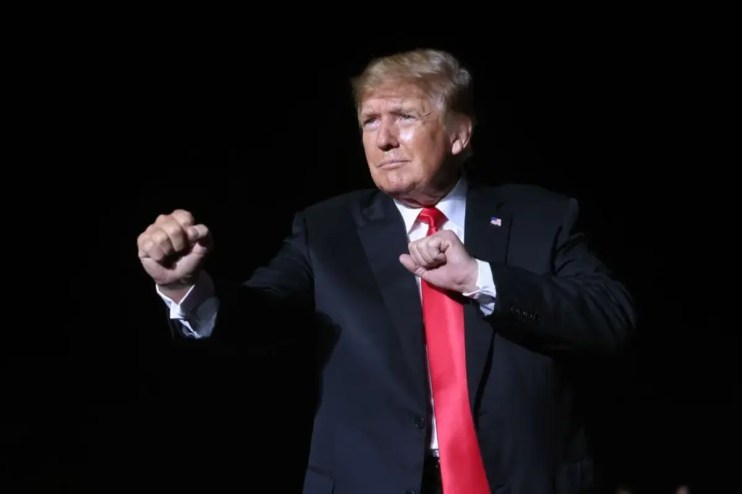As America goes to the polls, the world holds its breath

Tomorrow is decision day in America, but with the polls on a knife-edge it’s not clear if there’ll be a decisive victor… or if both sides will even accept the result, says Eliot Wilson
Tomorrow more than 240m Americans can cast their votes for the next President of the United States. Many have already done so: in fact more than half may now have chosen their preferred candidate. It is two years since Donald Trump formally announced that he would seek another term as President, but in truth the campaign seems like one of the “forever wars” against which he has railed, so long and ubiquitous has it been. Tuesday 5 November is decision day.
Is it really the end, though? If Trump wins, then the campaign is over and the country – and the world – will brace itself for whatever is to come. However, if Vice-President Kamala Harris is declared the victor, there must be a very strong chance that Trump refuses to accept the result and resorts at least to litigation in order to disrupt or overturn the electorate’s judgement.
When President Joe Biden was still the Democratic candidate, Donald Trump’s chances of returning to the oval office looked substantial. Since the President was finally persuaded to stand aside rather than seek another term, with his 82nd birthday looming later this month, the picture has changed. Harris, more than 20 years younger and infinitely more energetic, has sought to run a positive and optimistic campaign and the race for the White House is now impossibly close.
The most recent polls have generally indicated an advantage for the Vice-President, but rarely by more than a few points, leaving the result well within the statistical margin of error. Anyone who claims certainty about the outcome is lying or could make their fortune betting on horses. The raw numbers show an election on a knife-edge.
Will Trump accept defeat?
That Trump would not accept defeat is a justifiable prediction. He remains adamant that he was the real victor of 2020’s presidential election and that it was “stolen”. Indeed, coddled by his narcissistic other-world, he claimed that he had won all 50 states – something no President has ever achieved – and won an unprecedented victory in the electoral college of 535 to three. This was negated, he says, by systematic fraud and voting irregularities, including rigged voting machines, ballot boxes being stuffed, Republican votes being lost and illegal immigrants casting ballots.
No evidence has been found of widespread fraud or irregularity. Joe Biden beat Donald Trump by 306 votes to 232 in the electoral college, winning 51.3 per cent of the popular vote to Trump’s 46.8 per cent. Not only has Trump never won the popular vote (Hillary Clinton received nearly 3m more votes in 2016), but the Republican Party has only once, in 2004, won a plurality since George HW Bush was elected president in 1988.
Despite that, affirming that the 2020 election was “stolen” is now a test of faith for ambitious Republicans. Trump’s running mate, JD Vance, has said that “big tech rigged the election”. Elise Stefanik of New York, chair of the House Republican Conference, has consistently claimed the election was fraudulent. More than two-thirds of Republican voters and Republican-leaning independents do not believe Biden’s victory was legitimate.
In a society as friendly to litigation as the United States, an aggrieved candidate with the financial resources and fantastical self-belief of Donald Trump would have any number of avenues to dispute a Harris victory; the number of accusations he made about the previous election shows the kinds of claims which could be made.
Trump’s practical position is weaker than four years ago when he was the incumbent President, his hands still on the levers of power, and it may be that a smooth Biden/Harris transition could be effected while he raged from the sidelines. However, a Maga-loyal Republican congressional delegation could make confirmation hearings a bloody slog, even assuming there was no public unrest or disruption. The 76 days between tomorrow’s election and the 47th president’s inauguration on 20 January 2025 provide some breathing space.
There is nothing in the polling data to rule out Donald Trump winning the presidency of the United States this week. If he does not, the American political community may face a serious challenge to its stability and legitimacy. The rest of the world should prepare to be patient. Tomorrow is just the beginning.
Eliot Wilson is a writer